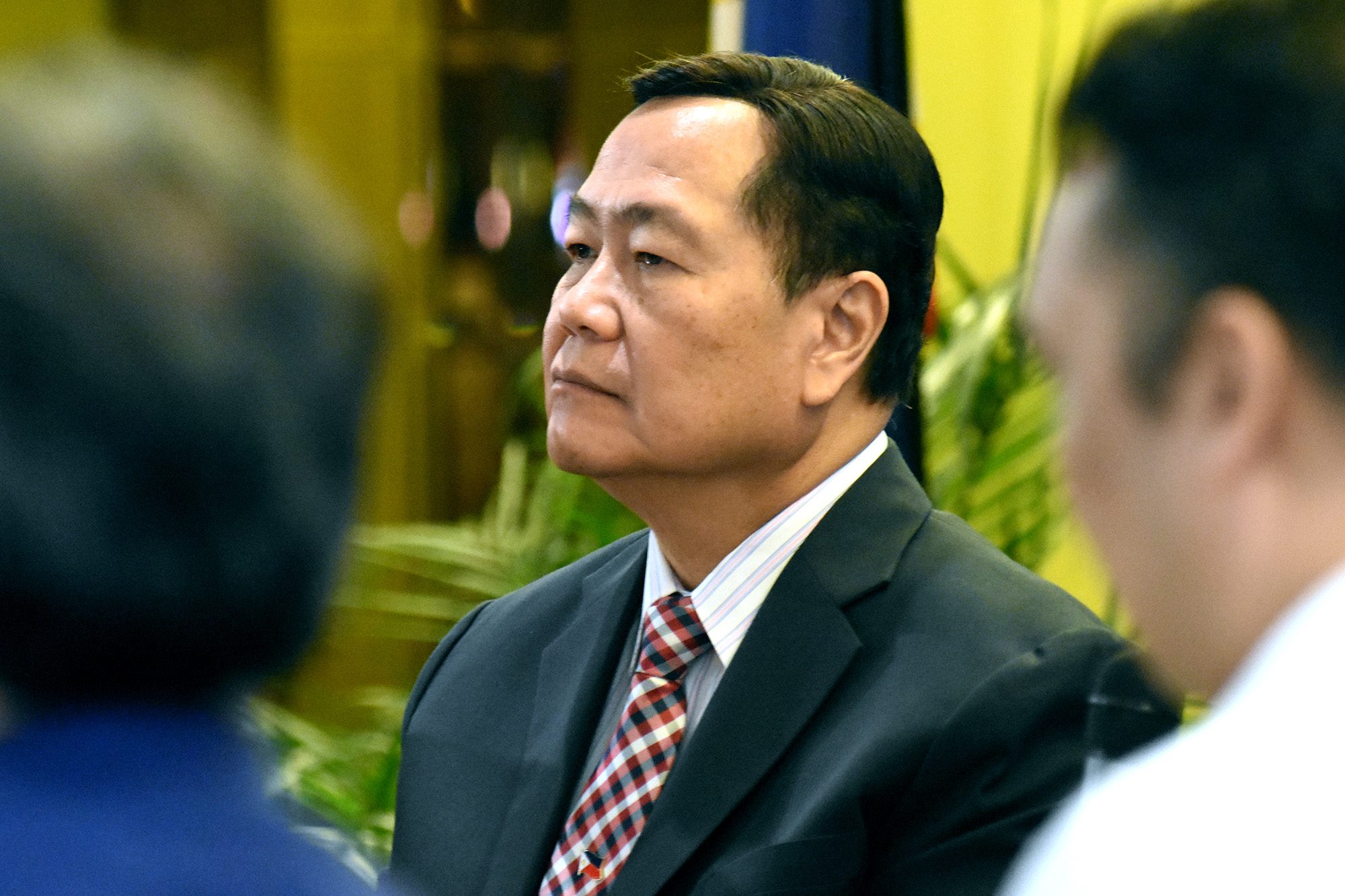SUMMARY
This is AI generated summarization, which may have errors. For context, always refer to the full article.

MANILA, Philippines (3rd UPDATE) – President Rodrigo Duterte cannot unilaterally withdraw the Philippines from the International Criminal Court (ICC), Senior Associate Justice Antonio Carpio said during Supreme Court (SC) oral arguments on Tuesday, August 28.
Carpio said that Duterte is mandated to faithfully execute the law, which includes the Rome Statute, an international treaty which was “transformed into a domestic law” when it was ratified by the Philippine Senate in 2011. It was the Rome Statute that created the ICC.
The oath of a president, as constitutionally required, includes a promise to “preserve and defend the Constitution and execute its laws.”
“Because you are sworn to execute the treaty, to implement the treaty, you cannot obviously repeal the treaty yourself, correct? You cannot abrogate it, correct? You cannot do anything that will prevent the implementation or execution of the treaty, correct?” Carpio asked rhetorically during his interpellation of lawyer Romel Bagares, who represents petitioner Philippine Coalition for the ICC or PCICC.
Malacañang has said it is Duterte’s lone discretion to pull out from the ICC as the chief architect of foreign policy.
By making such statements, Carpio again clashes with Duterte on a crucial policy. Carpio is one of the most vocal critics of Duterte’s policy on China, particularly on the West Philippine Sea (South China Sea) issue.
This clash will play out in the talks of whether or not Carpio can be appointed chief justice after Teresita Leonardo de Castro retires on October 8.
Duterte said his basis for appointing De Castro – despite having barely two months to serve – is seniority. De Castro was the most senior among the 5 applicants.
“It will be the same for all judges, not only De Castro, lahat ‘yan sila (all of them),” Duterte declared on Monday, August 27.
In terms of incumbency however, Carpio is the most senior, but he declined his nomination for the vacancy left by Maria Lourdes Sereno out of principle. He said he didn’t want to benefit from the quo warranto ouster that he opposed.
When De Castro retires, Carpio will once again be automatically nominated but he will have to accept the nomination.
Duterte doesn’t seem to believe that Carpio will accept it, but if the senior justice does accept, the President will be put to test – if he will remain true to his word that seniority will be his sole basis in appointing the next chief justice.
Repealing law
A dominant discussion during Tuesday’s oral arguments was the balance between respecting presidential discretion, but also letting the two other branches effectively exercise a check and balance role vis-a-vis the president.
“That’s where the lines are drawn, essentially the issue you are presenting to this Court forces this Court to make a decision between checks and balances and the powers of the president,” said Associate Justice Francis Jardeleza.
Petitioners believe that Duterte can only withdraw the Philippines from the ICC if two-thirds of the Senate concur. The problem with this position is that the Constitution only explicitly states the requirement of two-thirds concurrence from the Senate for the approval of a treaty; there is no mention of a withdrawal.
For Carpio, the treaty can be repealed in the same way that every other law can be repealed, which is for Congress to pass a repealing law by majority of a quorum.
Carpio pointed out that when two laws are inconsistent with each other, it’s the later law which will prevail. (READ: Playing the cards right? Politics of ICC oral arguments)
“When a law is passed repealing a prior treaty, you don’t even need two-thirds of the Senate, you don’t need a majority of members, you only need a majority of quorum, so you agree with me that for the withdrawal or the repeal of the treaty, there is only majority required if the Congress acts on it,” said Carpio.
Duterte has enjoyed overwhelming support for his bills at the House of Representatives. Carpio seems to acknowledge that, saying “a majority of 151 (quorum) is enough to pass that bill in the House” which can repeal the treaty.
While Duterte may still get his way in the House based on Carpio’s suggestion, Congress can still exercise its check and balance duty, with the separation of powers still being respected, strictly speaking.
‘Voluntary’
Malacañang on Wednesday, August 29, reiterated its position that Duterte, as chief architect of Philippine foreign policy, could withdraw the Philippines from the ICC without consulting with the Senate.
“Well that’s a matter of interpretation kung sino masusunod. Pero nagdesisyon na ang [Presidente] ano, [na] ayaw ko na sumali diyan, so lets respect it,” Executive Secretary Salvador Medialdea said.
(Well, that’s a matter of interpretation on who should be followed. But [the President] made a decision already, that I don’t want to be part of it anymore, so let’s respect it.)
The Palace official said since joining the ICC is voluntary, a signatory state can just as easily “leave” it. “‘Yung pagjoin mo diyan is a voluntary act eh, ‘di ba? Sa ICC (Joining the ICC is a voluntary act, right)? If you want to join, join. If you want to leave, leave. They cannot force you,” he said.
The next hearing has been set for Tuesday next week, September 4, with the opposition senators being interpellated unless they again do not show up as they did on August 28.
LISTEN to the proceedings at the Supreme Court. – With a report from Pia Ranada/Rappler.com
Read related stories:
Add a comment
How does this make you feel?
There are no comments yet. Add your comment to start the conversation.